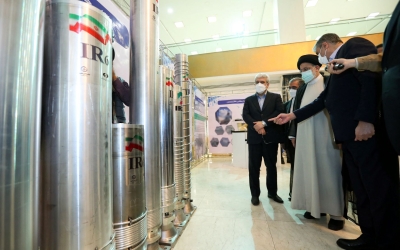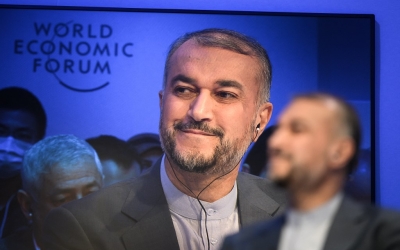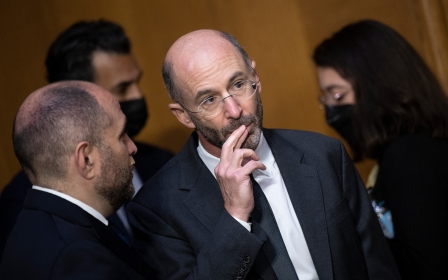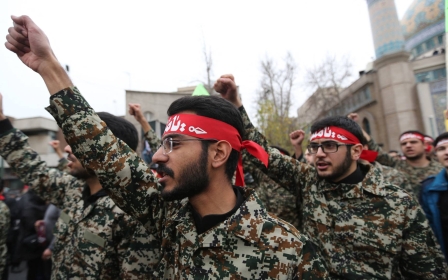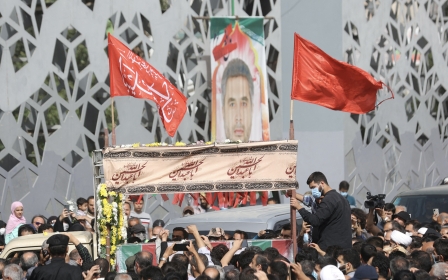Iran disconnects nuclear site cameras after western censure motion
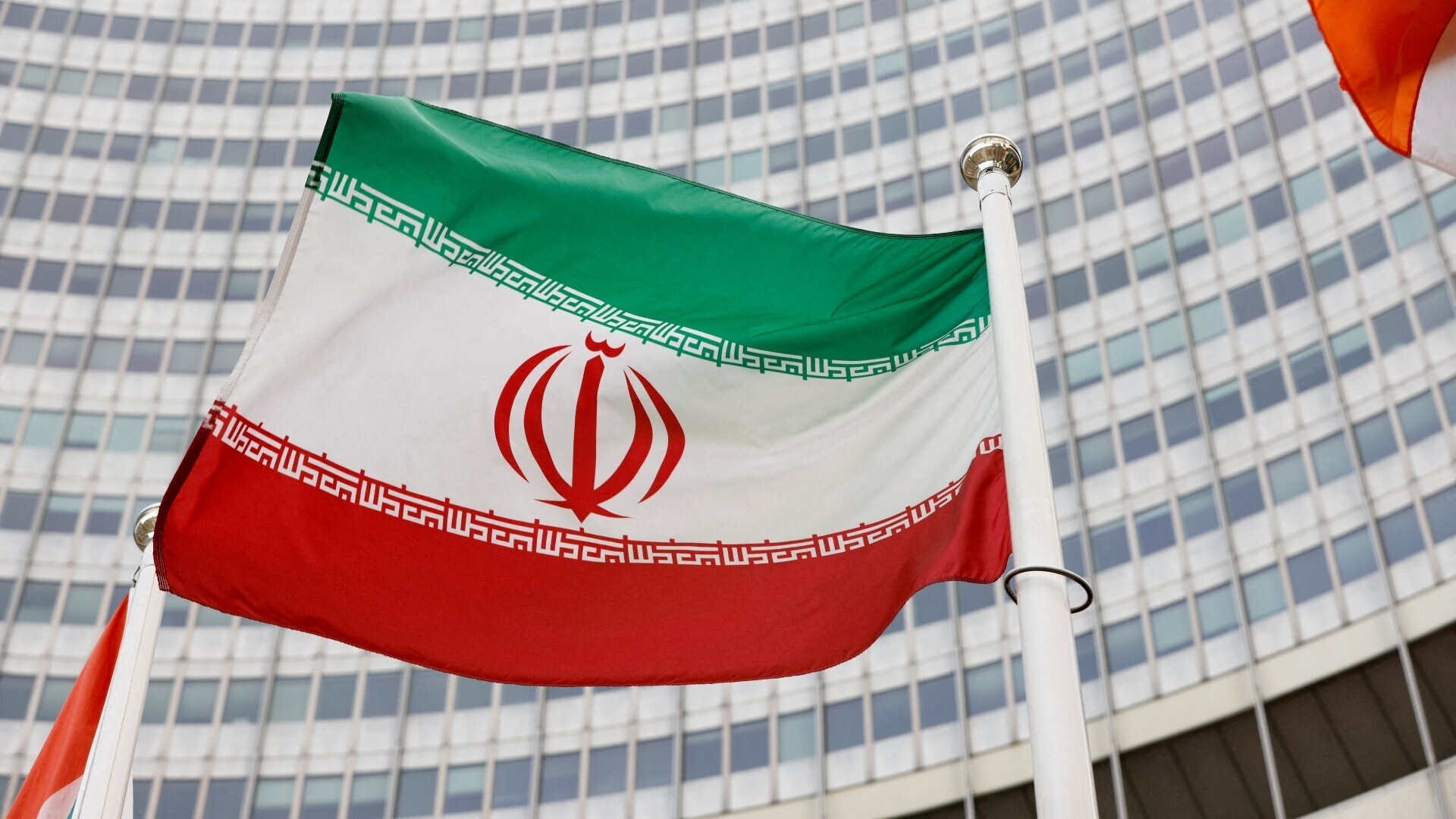
Iran on Wednesday disconnected some of the UN atomic watchdog's cameras monitoring its nuclear sites, its atomic energy agency said, after western nations accused the Islamic republic of failing to cooperate.
The move was announced after Britain, France, Germany and the United States submitted a resolution to the International Atomic Energy Agency (IAEA) to censure Iran.
The motion, the first such step since June 2020, was seen as a sign of growing western impatience with Iran after talks on reviving its 2015 nuclear deal stalled in March.
Iran said the disconnected cameras had been operating as a "goodwill gesture", outside its safeguard agreement with the IAEA, according to AFP.
"As of today, the relevant authorities have been instructed to cut off the online enrichment monitor and the flow meter cameras of the agency," said the Atomic Energy Organisation of Iran (AEOI).
The AEOI added that Iran's agreement to allow the cameras to run was not "appreciated" by the UN agency but considered an "obligation".
Its statement did not specify how many cameras had been turned off, but said "more than 80 percent of the agency's existing cameras are operating according to the safeguard agreement and will continue to operate just as before".
Behrouz Kamalvandi, spokesman for the Iranian agency, had "monitored the shutdown of two IAEA cameras at a nuclear facility", the statement added.
"Other measures are being considered and we hope that they will come to their senses and respond to Iran's cooperation with cooperation," he told state TV.
On Friday, Iran had threatened an immediate response to any "political" action by its opponents at the IAEA meeting.
Foreign Minister Hossein Amir-Abdollahian had warned that an announcement by the US that it would join Europeans in backing a resolution urging Iran to cooperate with the IAEA could risk undermining a diplomatic solution to the impasse.
"Any political action by the United States and the three European countries in the IAEA would provoke without any doubt a proportional, effective and immediate response on the part of the Islamic Republic of Iran," Amir-Abdollahian said on Friday during a telephone conversation with EU foreign policy chief Josep Borrell, according to a statement.
Uranium stockpile
Iran reached a deal with world powers in 2015 to limit its nuclear programme in return for sanctions relief. But the agreement has been on life support since then-President Donald Trump unilaterally withdrew the US from it in 2018.
Tehran, which denies seeking to build a nuclear bomb, has backed away from some of its own commitments since 2019.
European capitals have expressed mounting concern over how far Iran has gone in resuming nuclear activities since the US began reimposing sanctions.
Iran has built up large stockpiles of enriched uranium, some of it enriched to levels far higher than those needed for nuclear power generation.
"Its nuclear programme is now more advanced than at any point in the past," the governments said in their joint statement, adding Iran's accumulation of enriched uranium has no "credible civilian justification".
In a joint statement to the IAEA, Britain, France and Germany had said they "strongly urge Iran to stop escalating its nuclear programme and to urgently conclude [the] deal that is on the table".
'No hidden activities'
Iran's nuclear organisation chief, Mohammad Eslami, had said earlier on Wednesday that "Iran has no hidden or undocumented nuclear activities or undisclosed sites", state news agency IRNA reported.
"These fake documents seek to maintain maximum pressure" on Iran, he added, referring to the crippling economic sanctions reimposed by Washington under Trump.
"This recent move by three European countries and the US by presenting a draft resolution against Iran is a political one," Eslami said, adding that Iran had maintained "maximum cooperation" with the IAEA.
The trigger for the latest western condemnation was a report issued by the IAEA late last month, in which it said it still has questions about traces of enriched uranium previously found at three sites, which Iran had not declared as having hosted nuclear activities.
The UN watchdog said those questions were "not clarified" in its meetings with Iranian authorities.
The IAEA board of governors is expected to vote on the motion later on Wednesday or on Thursday, diplomats said.
The talks to revive the nuclear accord started in April 2021 with the aim of bringing the US back in, lifting sanctions and getting Iran to return to the limits it agreed to on its nuclear activities.
But negotiations have stalled in recent months and Borrell warned last weekend that the possibility of returning to the accord was "shrinking".
IAEA head Rafael Grossi said on Monday that it would be "a matter of just a few weeks" before Iran could get sufficient material needed for a nuclear weapon if it continued to develop its programme.
Middle East Eye propose une couverture et une analyse indépendantes et incomparables du Moyen-Orient, de l’Afrique du Nord et d’autres régions du monde. Pour en savoir plus sur la reprise de ce contenu et les frais qui s’appliquent, veuillez remplir ce formulaire [en anglais]. Pour en savoir plus sur MEE, cliquez ici [en anglais].


